All Stories
-
 Space
SpaceA private Japanese spacecraft failed on its way to the moon’s surface
The spacecraft’s owner, ispace, is attempting to land these crafts to commercialize lunar resources.
-
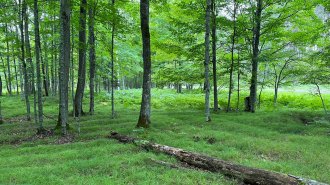 Archaeology
ArchaeologyPrecolonial farmers thrived in one of North America’s coldest places
Ancestral Menominee people in what’s now Michigan’s Upper Peninsula grew maize and other crops on large tracts of land despite harsh conditions.
By Bruce Bower -
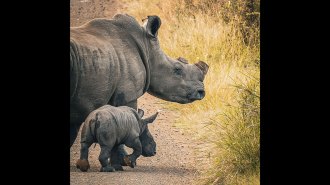 Animals
AnimalsPreemptively cutting rhinos’ horns cuts poaching
Comparing various tactics for protecting rhinos suggests that dehorning them drastically reduces poaching.
By Jake Buehler -
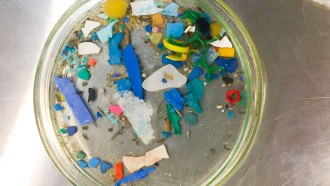 Health & Medicine
Health & MedicineA diet full of tiny plastics triggered health problems in mice
Mice exposed to polystyrene nanoplastics developed problems in their guts and livers. It’s not yet clear if humans are similarly affected.
By Meghan Rosen -
 Animals
AnimalsProbiotics helped great star corals fend off a deadly disease
A probiotic paste prevented the spread of stony coral tissue loss disease, but the treatment is still a proof-of-concept, not a cure.
-
 Earth
EarthSmall earthquakes can have a big impact on the movements of major faults
Small and far-off earthquakes can stifle the spread of large motions on some of the world’s biggest faults.
By Nikk Ogasa -
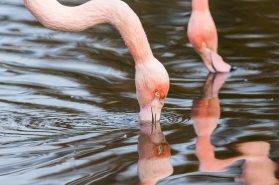 Animals
AnimalsFlamingos create precise water vortices in a shrimp-hunting frenzy
Nashville Zoo flamingos reveal the oddball birds generate many types of vortices to eat. The swirls could be an inspiration to human engineers.
By Elie Dolgin -
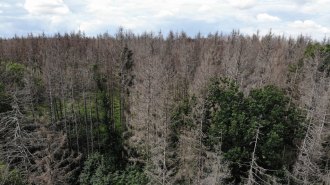 Plants
PlantsTrees ‘remember’ times of water abundance and scarcity
Spruce trees that experienced long-term droughts were more resistant to future ones, while pines acclimatized to wet periods were more vulnerable.
-
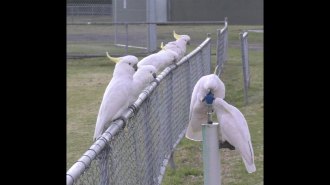 Animals
AnimalsAussie cockatoos use their beaks and claws to turn on water fountains
Parrots living in Sydney have learned how to turn on water fountains for a drink. It's the first such drinking strategy seen in the birds.
By Jake Buehler -
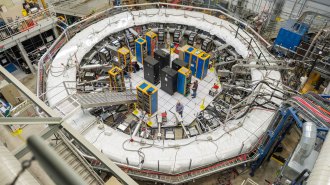 Particle Physics
Particle PhysicsMuons’ magnetism matches theory, easing an enduring physics conundrum
A puzzle over muons’ magnetic properties could have broken the standard model. But the theory bounced back.
-
 Health & Medicine
Health & MedicineU.S. moms say their mental health is getting worse
A national survey finds that mothers of children ages 0 to 17 years report mental health declines from 2016 to 2023.
-
 Astronomy
AstronomyA dwarf galaxy just might upend the Milky Way’s predicted demise
The Milky Way may merge with the Large Magellanic Cloud in 2 billion years, not Andromeda, contrary to previous findings.
By Nikk Ogasa